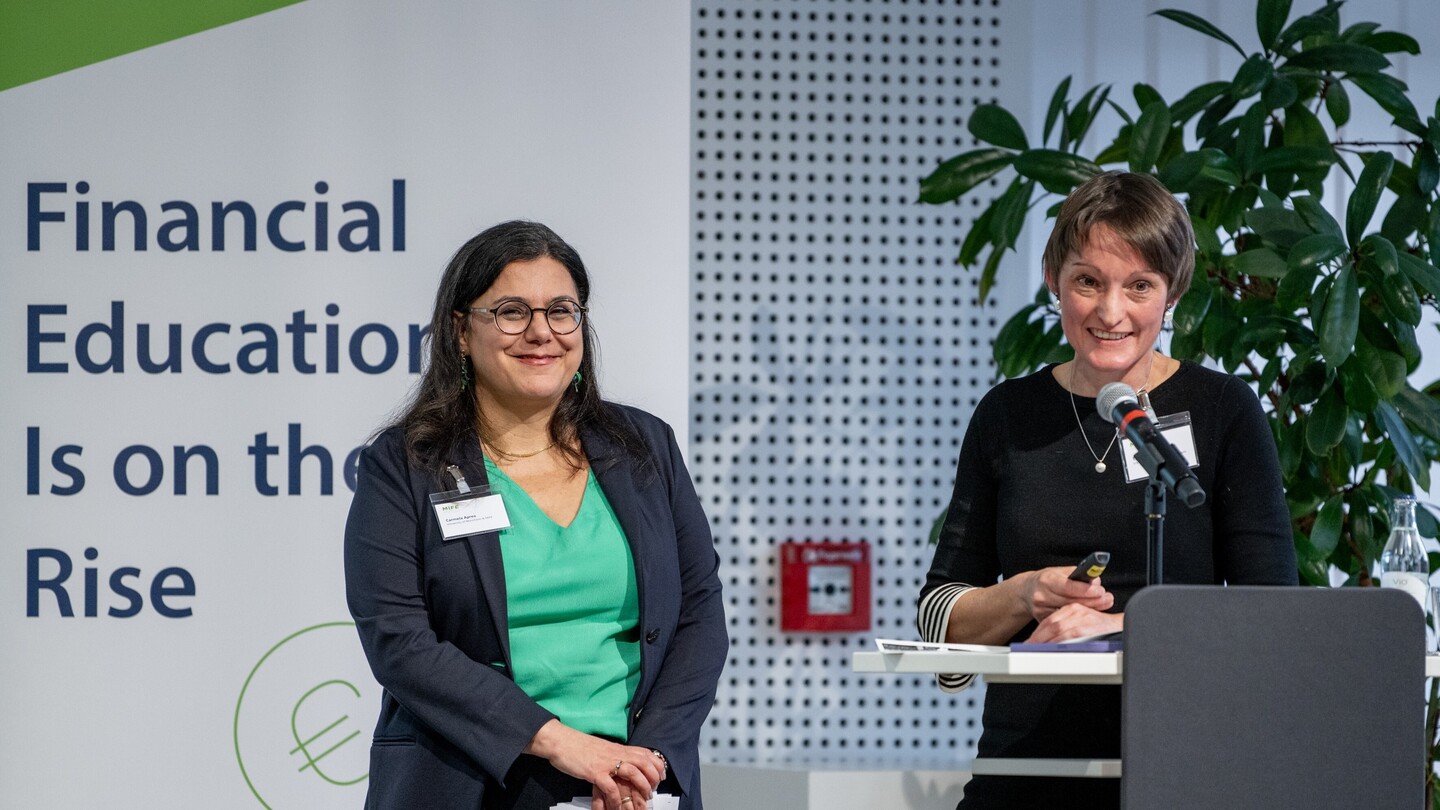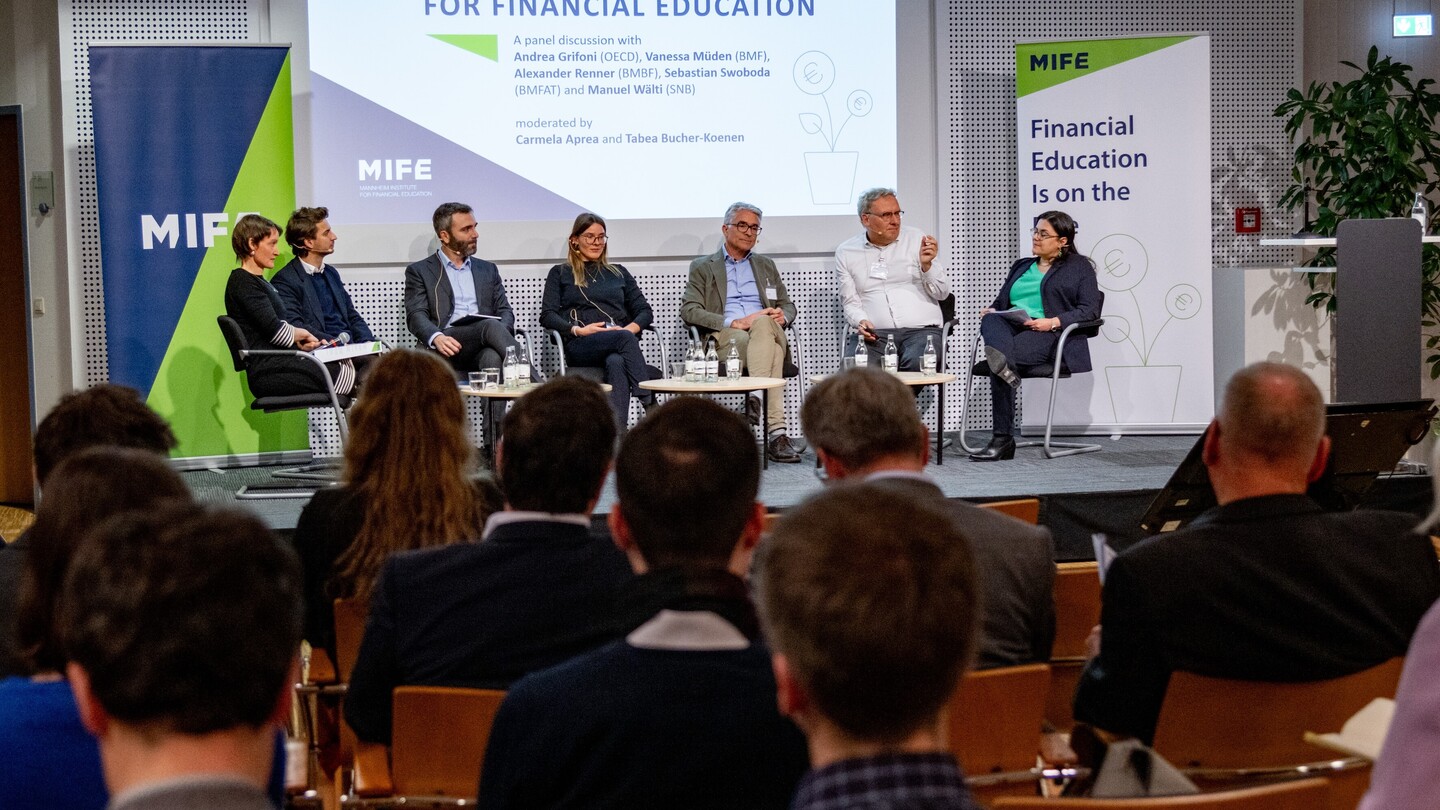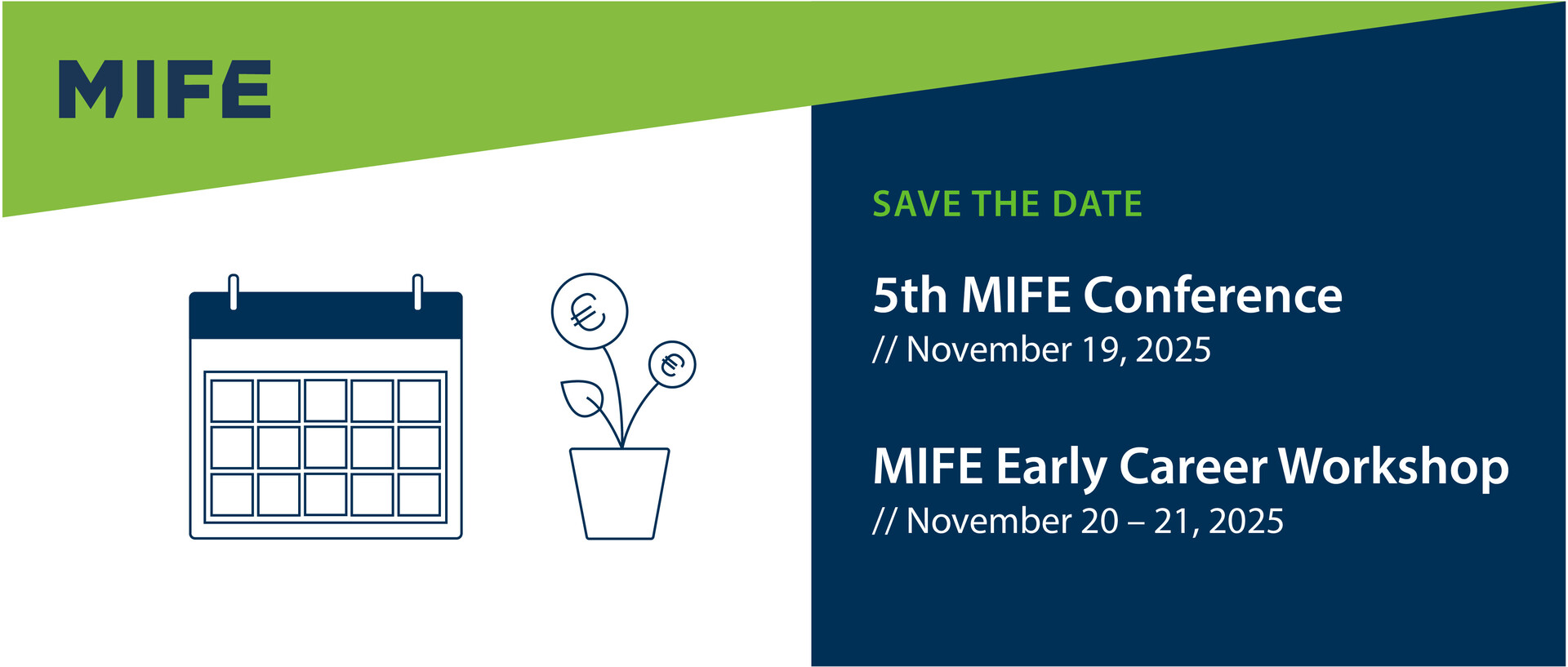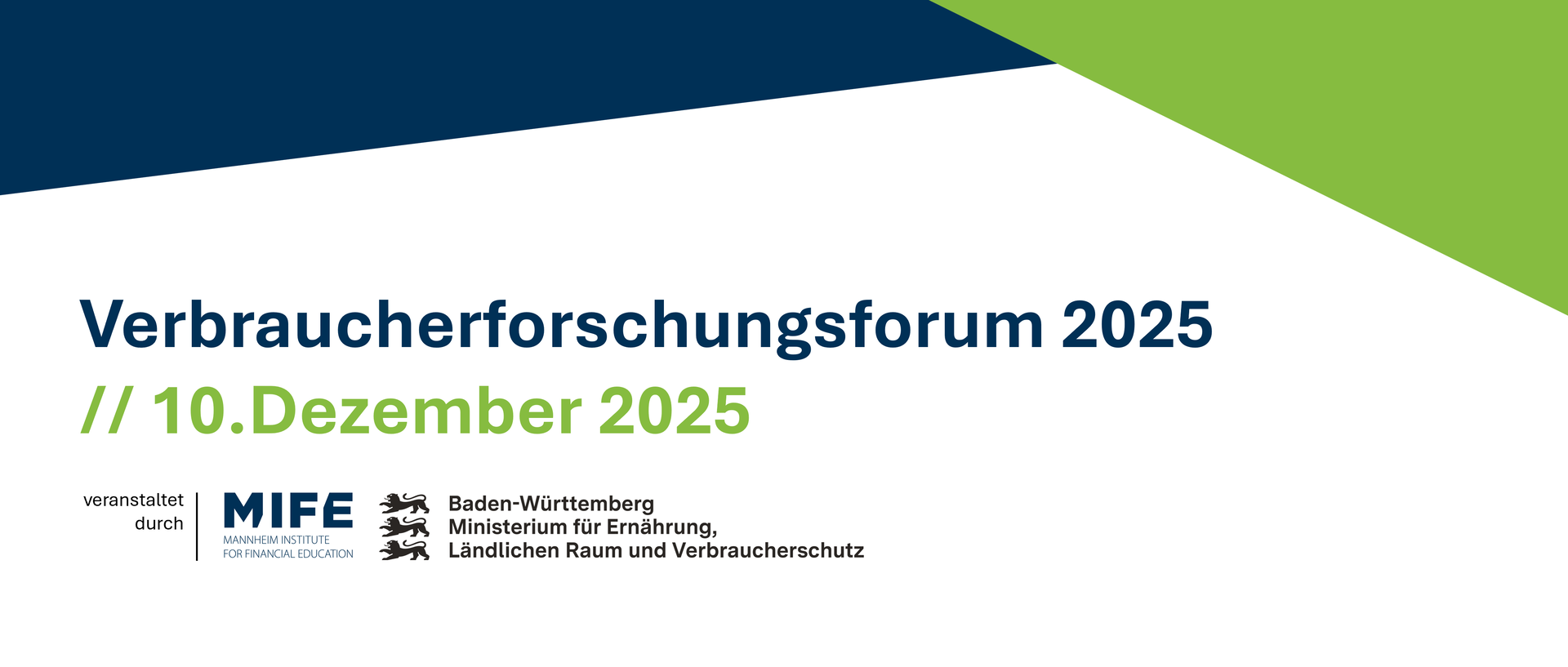MIFE Conference 2024 –Summary Report

This year's MIFE conference, which was dedicated to the topic “Evaluation and Monitoring of Financial Education,” took place on November 18 in Mannheim. Subsequently, young researchers were allowed to present their work and exchange ideas in a two-day workshop. More than 100 participants discussed current research on measuring financial competencies, the future of financial education in Germany, and implementing the German financial education strategy.
The conference kicked off with an opening lecture by the directors of the Mannheim Institute for Financial Education (MIFE), Carmela Aprea (University of Mannheim) and Tabea Bucher-Koenen (ZEW and University of Mannheim), who presented the institute's current research projects.
In the first keynote speech, Carly Urban (University of Montana, US) emphasized the importance of financial education in schools and its potential to sustainably improve young people's financial behavior. She highlighted the advantages of compulsory financial education in schools based on US data. In particular, students from low-income households benefit from it in the long term. Participation in financial education programs was associated with long-term reductions in payment defaults, higher credit ratings, and more favorable credit options. Urban outlined topics for future research, this includes the involvement of parents in financial education programs, the appropriate training of teachers, and the use of online platforms and gamified learning methods.
In his keynote address, Carlo Di Chiacchio (INVALSI, IT) discussed the progress and challenges of financial education in Italy. For example, Italy's poor performance in the 2012 PISA study spurred efforts to include financial education in curricula and develop a national strategy. A committee established in 2017 is designed to improve initiatives, coordinate action programs, and evaluate the experiences of various stakeholders. Di Chiacchio then addressed methodological issues in measuring financial capability and suggested going beyond traditional measurement tools, including situational testing methods and using AI technology for the analysis.
In his keynote address, Andrea Grifoni (OECD) presented the OECD recommendations for a German financial education strategy. The aim is to promote the financial well-being of adults and young people through evidence-based initiatives and a better coordination of programs. The OECD recommendations are aimed at public and private stakeholders in Germany. Grifoni particularly emphasized the need for targeted support for vulnerable population groups. Although financial literacy in Germany is above average, there are deficits in the use of digital services. Grifoni underlined the importance of an improved coordination between the federal and state levels and the need to involve all relevant stakeholders.

Andrea Grifoni (OECD), Vanessa Müden (Federal Ministry of Finance), Alexander Renner (Federal Ministry of Education and Research), Sebastian Swoboda (Federal Ministry of Finance of the Republic of Austria), and Manuel Wälti (Swiss National Bank) discussed the topic “Strategy and Quality Standards for Financial Education”. The panel was moderated by MIFE directors Carmela Aprea and Tabea Bucher-Koenen. The panel participants positively evaluated the progress made in developing the financial education strategy in Germany. Müden and Renner also outlined how the future development and implementation of the financial education strategy and the accompanying research could continue. In addition, experiences from neighboring Switzerland and Austria highlighted the successful integration of various stakeholders and how evidence-based offers can be (further) developed.

At the end of the event, the “Bundesbank Early Career Research Prize on Financial Literacy” was awarded for the fourth time by Patricia Staab (Deutsche Bundesbank). This year, the awards went to the research papers by Lovisa Reiche (University of Oxford) entitled “Beyond Groceries: Financial Confidence and the Gender Gap in Inflation Expectations” and by David Westerheide (Lund University) entitled “Child Penalties in Personal Finances: Evidence from Bank Data,” which he co-authored with Arna Olafsson.
Following the MIFE Annual Conference, twelve early career researchers presented and discussed their research at the Early Career Workshop. In the workshop keynote, Carly Urban discussed how research projects can develop, drawing on her research on the internationally observed decline in financial literacy.


